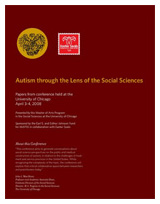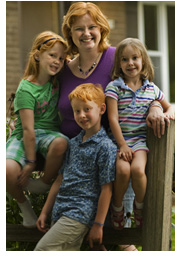Tips for a happier holiday
by Beth Finke
Changes in routine. Different demands. New foods. New sounds. New textures. The holidays can be an especially difficult time for people with autism. A holiday post on the ABA4Autism or other Neuropsychological Disorders blog offers tips to make the winter holidays better.
1. Try to keep your child in his or her usual routine as much as possible.
2. Sensory over stimulation — the lights, the sounds, the smells, the relatives touching your child — are the main culprits during the holidays. Eliminating or minimizing these culprits is your best bet.
3. Some families who have children with autism or other neuropsychological disorders wait until Christmas Eve to put up their tree and decorate.
4. Some families let their children with autism or other neuropsychological disorders do all of the decorating. Children with autism or other neuropsychological disorders may line up or stack decorations rather than decorate in the traditional way, but so what.
5. Rather than try to do the Christmas shopping with children with autism or other neuropsychological disorders in a crowded, noisy mall, many families shop by catalogue or online and let the child point to or circle the toys he/she wants. Websites, such as www.stars4kidz.com, offer a variety of toys for children with autism or other neuropsychological disorders. Just type “autism toys” in your search engine.
6. Tactile toys are often a better choice for children with autism or other neuropsychological disorders. Toys that make sounds or involve too much stimulation or are too complex may not cause an aversive reaction in the child. As mentioned above there are web sites that sell toys designed for children with autism or other neuropsychological disorders. Try ordering some of these toys and then let your child select the ones to play with as they are unwrapped.
7. Talk to relatives before they come over about the best way to behave with children with autism or other neuropsychological disorders. Have them read my article, “What Horses Tell Us About Autism,” which is available for free on the second page of my website.
8. Generally, kids with autism or other neuropsychological disorders do better in the morning than in the late afternoon or evening when they are tired. It may be better to schedule Christmas events at these times.
9. The parents of children with autism or other neuropsychological disorders need to relax themselves. Often the child with autism picks up on the parents’ stress and that is enough to ruin Christmas.
10. And last but not least, realize that you are probably not going to have a perfect food, perfect decorations, and perfect gifts. Christmas with children with autism or other neuropsychological disorders may not be traditional, but it can still have real meaning. (Sometimes I wonder if children with autism or other neuropsychological disorders know that Christmas has become too commercial.)
My husband and I are taking that idea about relaxing seriously this year. We’re waiting until after Christmas to head up to Wisconsin to celebrate with our grown son Gus in his group home. That way we won’t have to rush off to another celebration or family event — we can just hang out and have fun with Gus. We’re looking forward to the holidays this year, hope you are, too!








 I was happy to see the announcements in the Milwaukee
I was happy to see the announcements in the Milwaukee  There’s been a lot of buzz going around lately about the wonderful
There’s been a lot of buzz going around lately about the wonderful